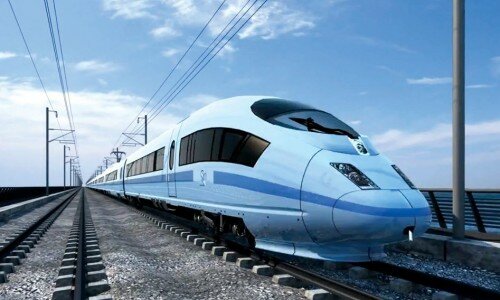
HS2 benefits study is a ‘wild west’ calculation, claims transport expert
Academics are divided over the benefits likely to flow from HS2, particularly the extent to which the high speed railway scheme will kick-start regional economies with one expert hitting out at a “wild west” method of calculating economic growth.
Transport specialists gave cautious support to HS2 when quizzed by the House of Lords Economic Affairs Committee, although plenty of warnings were sounded about the accuracy of the Department for Transport’s cost-benefit analysis.
Professor Peter Mackie, emeritus professor, Institute for Transport Studies, University of Leeds, said he felt a KPMG estimate of £15 billion of economic benefit by 2037 was “not very persuasive”.
He added that there were both “technical issues” related to the specific methodology used in the report, as well as wider issues related to the general macroeconomic assumptions involved, particular regarding the multiplier effects involved in the calculation.
Prof Mackie said the Treasury needed to give more advice on how such calculations of this kind were done, and described the situation at present as “like the wild west.”
He added that if the economic impacts were limited to transport issues, the whole HS2 Y-shaped network offered a “reasonable” benefit. This excluded consideration of environmental impacts.
Risk analysis for the economic case showed the scheme was “reasonably robust” to external market factors, he added. However he did not think building phase one on its own offered enough value for money.
Professor Dan Graham, professor of statistical modelling and research director of the Railway and Transport Strategy Centre at Imperial College, took the opposite view and said he did not have “major problems” with KPMG’s findings.
However, Prof Graham warned that work within the report on issues such as how connectivity affected productivity were less persuasive, saying consultants involved had not had enough time to “do it justice”.
Asked whether the Government’s claim that HS2 would create thousands of jobs and trigger substantial economic growth along the route from London to Birmingham, Manchester and Leeds, Prof Graham said: “This is an incredibly difficult issue to pin down.”
Although the KPMG report contained “interesting” analysis, the lack of data made such claims essentially “speculative”, Prof Graham added.
Dr Matthew Niblett, senior visiting research associate at the Transport Studies Unit, Oxford University, agreed that the whole scheme needed to be implemented. He said this depended on local transport infrastructure being built, which would entail additional costs.
Dr Niblett supported the Government’s view that HS2 would release much-needed additional capacity on existing rail routes. He anticipated continuing growth in rail travel at the expense of journeys by car.
Professor Tony Venables, BP professor of economics at the University of Oxford, described forecasts of economic benefit arising from HS2 as an “informed act of faith”.
He noted the KPMG report did not consider issues of how the scheme could generate new private investment, which he described as the “big issue” regarding HS2. Though this factor was difficult to measure, for a study this large more attention should have been made to this aspect, he added.
Prof Venables said economic theory supported the view that increased connectivity tended to promote economic convergence within a country and defended the idea that regional benefits would be produced by HS2 by increasing investment outside of London.
Asked by former Chancellor Lord Lawson whether it might be feasible to spend money not on a high-speed network but on making the existing network more reliable, Professor Roger Vickerman from Kent University said he did not think this was impossible, but added that “you would spend a lot of money and not get the same sort of benefits.”
Asked by Lord Lawson whether HS2 would provide the best “bang for your buck” or whether some other projects were preferable, Prof Venables said he felt something “rather serious” needed to be done to address regional economic disparities and that “fairly ambitious transport” was needed alongside other measures such as training and skills.
Similar Articles
Clancy reshuffles the reshuffle as Jenkins drops out of cabinet 7
Birmingham city council leader John Clancy has been forced to reshuffle his cabinet for a
‘We’ll take on 1,000 more bobbies to make streets safer’, vows police chief 2
West Midlands Police is set to launch a £50 million recruitment programme to put 1,000
Council’s £42m business rates deficit puts future funding stream in doubt 4
Birmingham city council is running a £42 million deficit on its business rates collection fund. The
Ruthless Clancy opts for soft shoe shuffle, but there’s more to come 12
Chamberlain News' chief blogger Paul Dale reflects on a week marked by dramatic cabinet changes
Jamieson slams ‘ludicrous’ £40,000 ‘light touch’ mayor, and makes Siôn Simon an offer 24
The latest attempt to downgrade the role of the West Midlands metro mayor could see the










